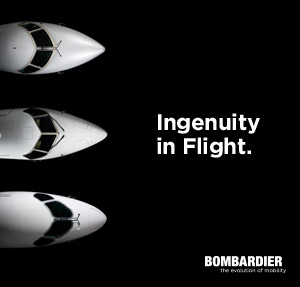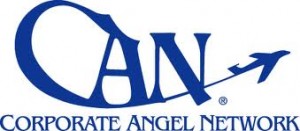IBERIA CERTIFICA UN HANGAR PARA PINTURA DE AVIONES NUEVOS O RECIÉN REVISADOS, TANTO DE IBERIA COMO DE OTRAS COMPAÑÍAS AÉREAS
November 17, 2008
• Se ha dado máxima prioridad a la protección del medio ambiente y de los trabajadores, tanto por la pintura utilizada como por las instalaciones y equipamiento.
• Los primeros aviones atendidos en el nuevo hangar son de las compañías Saudi Arabian y Ural Airlines
Madrid, 10 de noviembre de 2008
Iberia ha renovado su hangar de mantenimiento destinado a pintura de aviones para mejorar y ampliar su actividad a Iberia así como a otras compañías aéreas que lo soliciten.
El hangar acondicionado, que cuenta con 2.900 metros cuadrados, permitirá desarrollar distintos tipos de actividades entre las que se incluyen los procesos de decapado, lijado, pintado y secado de aviones, no solo para aquellos que finalicen la revisión de mantenimiento mayor, conocida como “la gran parada”, sino también para aquellos que acaben de salir de fábrica.
Los primeros aviones en recibir los servicios de pintura han sido un Boeing B-757/200 de la compañía Saudi Arabian y un Airbus A-320 de la compañía Ural Airlines.
Las instalaciones, ubicadas en el complejo industrial contiguo al aeropuerto de Barajas, “La Muñoza”, cuentan con un equipamiento tecnológico avanzado y de referencia gracias al montaje de una estructura luminaria que permitirá realizar los trabajos con una iluminación superior a la luz del día, y a la colocación de mecanismos de control del aire, que favorecerán la ventilación y climatización en el área del hangar.
Además de la reestructuración del hangar, el tipo de pintura que se va a emplear para los aviones es más respetuosa con el medio ambiente al presentar bajos componentes volátiles nocivos para el entorno. De igual forma, la pintura será de menor peso, por lo que contribuirá a reducir el consumo de combustible.
Iberia Mantenimiento cuenta en Madrid con siete hangares destinados a diferentes actividades de revisiones y reparaciones, uno más en Palma de Mallorca y otro en construcción en Barcelona. Esta división de Iberia posee una amplia experiencia en el mantenimiento de aviones, motores y componentes. Además de a Iberia, da servicio a más de 100 clientes, entre compañías aéreas de todos los continentes, fabricantes y militares, y es la novena empresa de mantenimiento del mundo con unos ingresos de 690 millones de euros en 2007.
Nota: Iberia es hoy la compañía líder en España, en las rutas entre España y Europa y también en el mercado Europa-América Latina. En 2007 tuvo unos ingresos de explotación de 5.522 millones de euros, con un EBITDAR de más de 932 millones de euros y unos beneficios netos de 327,6 millones de euros. Junto con su franquicia Iberia Regional/Air Nostrum ofrece más de 1.000 vuelos diarios a un centenar de destinos y transportó 32,5 millones de pasajeros en 2007. Iberia es miembro de oneworld, alianza que ofrece más de 9.000 vuelos diarios a alrededor de 680 destinos de 136 países. Más información sobre el Grupo Iberia en http://grupo.iberia.com.
Iberia certifies a hangar for painting new and overhaul aircraft
November 17, 2008
• The new facilities, its equipment, as well as the special paint use in it are more friendly to the environment and the employees
• First in line for paint jobs are Saudi Arabian and Ural Airlines planes
Madrid, November 10th, 2008
Iberia has refitted its maintenance hangars for painting aircraft to improve and extend its services to its own airplanes, as well as to those of other carriers.
The 2,900 m2 hangar is equipped for stripping, sanding, painting and drying the paint on aircraft following major overhauls, and also for painting new aircraft before they enter service.
The first aircraft to be painted in the new facility was a Boeing 757/200 belonging to Saudi Arabian Airlines, followed by an Airbus A320 flown by Ural Airlines.
Located at Iberia’s “La Muñoza” maintenance facilities near the Madrid’s Barajas airport, the hangar now boasts the latest equipment and a special lighting infrastructure that gives light brighter than daylight. Other innovations include air quality monitors that allow more precise control of ventilation and air temperature and humidity in the hangar.
The paint used at the new facility features fewer volatile components, making it more friendly to the environment. It is also lighter in weight, so will help to reduce fuel consumption.
Iberia Maintenance has seven hangars in Madrid for the different tasks involved in the inspection and repair of airframes, engines and components, plus an additional facility in Palma de Majorca, and a new hangar now under construction at Barcelona airport. The large maintenance division provides comprehensive services to Iberia and more than 100 outside clients, including airlines on all the continents, manufacturers, and military organisations. It is the world’s ninth-largest maintenance company, with gross income of 690 million euros in 2007.
Today, Iberia is Spain’s leading airline and also market leader on flights between Europe and Latin America. In 2007 it posted operating income of more than 5.52 billion euros and net earnings of 327.6 million, with an Ebitdar of 932 million. Iberia is also distinguished by its social, corporate, and environmental policies. Along with its franchise partner Iberia Regional, it operates some 1,000 flights every day to about 100 destinations. In 2007 Iberia carried 32.5 million passengers. It is a member of the oneworld airline alliance along with American Airlines, British Airways, Cathay Pacific, Finnair, JAL, LAN, Malev, Qantas and Royal Jordanian.
Grupo Marsans Places A Firm Order For A Total Of 61 Aircraft, Including Four A380s And Ten A350s.
November 17, 2008
Grupo Marsans, the largest tourism and transport group in Spain and fourth in Europe, has signed a firm order with Airbus for the purchase of 61 Airbus aircraft including four A380s, ten A350-900s, five A330-200s and 42 A320 Family aircraft (of which 12 A319s, 25 A320s and five A321s). These aircraft will be operated by Grupo Marsans’ subsidiary or related airlines. This new order adds to the previous order for 12 A330-200s and will bring Grupo Marsans’ total orders with Airbus to 73 aircraft.
On the occasion of the announcement, Gonzalo Pascual, President of Grupo Marsans, said: “This important order allows Grupo Marsans to put into action its mid and long term development plan, to enhance our position on the short and long haul sector by incorporating the most efficient aircraft available on the market today and tomorrow. In addition to the overall fleet enhancement this represents, we are particularly proud that, with the A380, we will become the first A380 customer and operator in Spain and Latin America.”
“This order, which basically covers all our product range, including the most recent ones such as the A380 and A350, represents a major vote of confidence. It will allow Grupo Marsans to benefit from the operational commonality of the Airbus product range in the best way possible,” said John Leahy, Airbus Chief Operating Officer Customers. “With this purchase, Grupo Marsans, who control various airlines in Europe and Latin America, will have the most efficient and modern aircraft fleet available to further strengthen and develop their operations both within Spain, regionally and internationally”, he added.
Being greener, cleaner, quieter and smarter, the A380 is already setting new standards for air transport and the environment. In addition to offering unequalled levels of passenger comfort, space and quietness in the cabin, the A380 has unmatched levels of operating costs and fuel efficiency, consuming less than three litres per passenger per 100 kilometres. Its new-generation engines and superb aerodynamic performance mean that the A380 not only complies with today’s noise limits, it is also significantly quieter than any other large aircraft flying today. With a range of 8 200 nm / 15 200 km, and seating 525 passengers in a standard three-class layout while being much more eco-efficient, the A380 is the ideal equipment to alleviate traffic congestion at busy airports, while coping with growth. Including this contract, total firm orders for the aircraft now stand at 196 from 17 customers.
The A350 XWB (Xtra Wide-Body) Family is Airbus’ response to widespread market demand for a series of highly efficient medium-capacity long-range wide-body aircraft. With a range of up to 8,300 nm / 15,400 km, it is available in three basic passenger versions: the A350-800 accommodating 270 passengers, the A350-900 seating 314, and the A350-1000 for 350 passengers in a typical three-class layout. The A350 XWB has the widest fuselage in its category, offering unprecedented levels of comfort, the lowest operating costs and lowest seat mile cost of any aircraft in this market segment. With power supplied by two new generation Rolls Royce Trent XWB engines, the A350 XWB Family is designed to confront the challenges of high fuel prices, rising passenger expectations, and environmental concerns. Total firm orders for the aircraft, including this contract, now stand at 463 from nearly 30 customers.
With a true wide-body fuselage allowing very high comfort standards, the A330-200 is able to accommodate seat and class configurations to suit the diverse customer requirements. It has a range of up to 6,750 nm / 12,500 km with a full passenger load. Its large under-floor cargo holds can also carry standard pallets and containers side-by-side. It also has the excellent operational flexibility necessary to serve a wide range of route structures, providing operators with very low operating cost per seat. Its proven record of economy and superior passenger comfort provides operators with a significant competitive advantage in the market today. Orders for the A330 stand at around 1000.
The A320 Family, which also includes the A318, A319 and A321, is recognized as the benchmark in the single-aisle aircraft market and has over 6,300 orders and more than 3,600 deliveries to its credit.
Airbus is an EADS Company.
CFM56-7B Receives Joint FAA / EASA Certification for P-8A Poseidon
November 17, 2008
EVENDALE, Ohio — November 6, 2008 — CFM International’s advanced CFM56-7B27A/3 engine model has been jointly certified by the U.S. Federal Aviation Administration and the European Aviation Safety Agency for the U.S. Navy’s P-8A Poseidon, paving the way for flight tests in 2009 and initial operational capability in 2013. The Navy plans to purchase 108 P-8As to replace its fleet of P-3C aircraft.
CFM International (CFM) is a 50/50 joint company between Snecma (SAFRAN Group) and General Electric Company. CFM is part of the Boeing-led P-8A team that also includes Spirit AeroSystems, Northrop Grumman, Raytheon, NAVAIR and GE Aviation.
The P-8A Poseidon is a derivative of the Next-Generation 737-800, also powered by the CFM56-7B family of engines, with increased gross weight capability. The aircraft will provide increased capability in long-range anti-submarine warfare, anti-surface warfare, intelligence, surveillance and reconnaissance.
Other models of the CFM56-7B engine that will power the P-8A, also power the Boeing 737 AEW&C and C-40 aircraft. Each engine is rated at 27,300 pounds (121 kN) takeoff thrust and will meet the Poseidon’s demanding electrical output requirements to support flight deck and mission system operations.
The CFM56-7B family is one of the world’s most reliable engines. More than 5,800 engines have been delivered to date, and the fleet has logged more than 86 million flight hours while maintaining an industry-leading 0.002 in-flight shutdown rate per 1,000 flight hours. This rate translates to one event every 500,000 flight hours.
Prior to certification, CFM completed an extensive series of engineering tests on the CFM56-7B engine earlier in 2008 to evaluate the its capabilities in extreme weather conditions. One engine successfully completed extensive icing tests at a special facility near Montreal (Quebec), Canada, to evaluate the CFM56-7B engine’s ability to meet the stringent icing requirements established by the Navy for this aircraft, including subjecting the engine to extreme conditions over an extended time period.
Another engine was subjected to the other temperature extreme. In a dedicated test cell at Snecma facilities in Villaroche, France, the engine successfully completed a series of thermal tests that included an entire engine build-up and series of tests actually included a simulation of a specific P-8A mission.
Oboronprom Corporation and AgustaWestland Agree Upon JV Establishment and UTAir Signs Letter Of Intent For Purchase of AW139s
November 6, 2008
Moscow, 6th November 2008. Oboronprom Corporation and AgustaWestland, a Finmeccanica company, are pleased to announce they have signed an agreement for the establishment of a 50-50 joint venture Company in Russia to set up and run a civil AW139 helicopter Final Assembly Line, for which the approval of the Russian Government is being sought, as required under the Strategic Enterprises Law.
The registered office of the JV Company and the Final Assembly Line will be located in the Moscow region of Russia and the AW139s assembled there will be used to satisfy the requirements of the civil markets in Russia and CIS countries primarily and – through the AgustaWestland network – for the rest of the world.
Furthermore, UTAir of Russia has signed a Letter Of Intent for the purchase of 35 to 49 AW139 helicopters over a 5-7 year period that will be delivered from the joint venture company’s Final Assembly Line starting from 2011. UTAir is a major world helicopter operator satisfying the needs of the oil and gas industry. However, a range of other services are provided by the company including transport, operations in the forest sector and forest patrolling, search and rescue, emergency medical evacuation and aerial works.
Pier Francesco Guarguaglini, Finmeccanica Chairman and CEO, commented “This latest achievement further strengthens AgustaWestland’s position in this key market where Finmeccanica has been building a remarkable industrial base in recent years through major cooperations with prime local players. We now see relevant business opportunities in the future”.
Giuseppe Orsi, AgustaWestland CEO, said “The establishment of a JV Company in Russia with Oboronprom will be a milestone in our global strategy aimed at expanding our presence in the civil market. We are also delighted that a leading company such as UTAir has selected the AW139 to be produced in Russia to satisfy their demanding operational requirements”.
“We evaluate the signing of the document as an important event for the Russian high-technology sector. This is the evidence of more intensive cooperation of our country and Russian companies in the global contribution. In the framework of this mutually beneficial co-operation the Russian helicopter engineering sector can gain access to the advanced production technologies and high quality standards of the product support. We will strive to expand our collaboration, and by means of localization of production in Russia as well” said Andrey Reus, Director General, OPK Oboronprom.
TACA has partnered with 10 airlines to offer e-ticketing
November 6, 2008
The agreement to use a single electronic ticket for interline flights is now in place with Korean Air, Iberia, American Airlines, Mexicana, Copa, Aeromexico, Continental, Air Canada, United and Hahn Air.
Avianca announces increased service in Colombia this winter
November 6, 2008
Beginning on December 1 through
Viva Aerobus adding new routes in Mexico
November 6, 2008
The Mexican LCC has announced that it will add four new routes to
Spanish airlines will add capacity to the Americas this winter
November 6, 2008
Iberia, Air Comet and Pullmantur Air will be adding frequencies this winter to
Cessna Announces Special Program for Citation Mustang Customers
November 6, 2008
Cessna Announces Special Program for Citation Mustang Customers
SAN JOSE, Calif., Nov. 6, 2008 – Cessna Aircraft Company, a Textron Inc. (NYSE: TXT) company, is partnering with Cessna Finance Corporation on a special program for Citation Mustang buyers. These customers are eligible to lease a Cessna 400 during the time between order and delivery of their new Mustang with no purchase obligation for the Cessna 400.
“This is a great solution for Mustang customers who are waiting to take delivery yet have an immediate need for an aircraft. The Cessna 400 is the fastest fixed-gear single-engine piston on the market today, and is a natural stepping stone into the Mustang,” said Tom Aniello, Cessna’s vice president, Marketing.
Last month at the National Business Aviation Association Meeting and Convention in Orlando, Fla., Cessna announced it has an average of three Mustangs rolling off the production line each week at its Independence, Kan., manufacturing facility. At full rate, employees on the Mustang line are scheduled to deliver 150 entry-level business jets per year starting in 2009.
The current fleet of Citation Mustangs totals roughly 125 aircraft that have accumulated more than 19,000 flight hours, and the high-time aircraft has logged more than 500 hours. The Mustang is currently certified in 51 countries.
Cessna acquired certain assets of the Bend, Ore., operation in December 2007. The company has since rebranded the models and transitioned the Bend, Ore., composite aircraft facilities. Cessna expects to deliver 150 Cessna 350/400 high-performance, low-wing composite aircraft this year.
Both the Citation Mustang and Cessna 400 are on static display at Mineta San Jose International Airport during AOPA Expo 2008.
###
<







